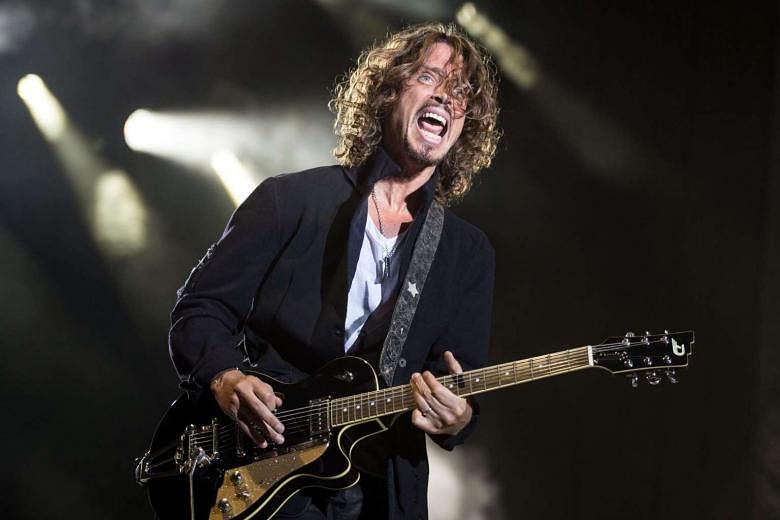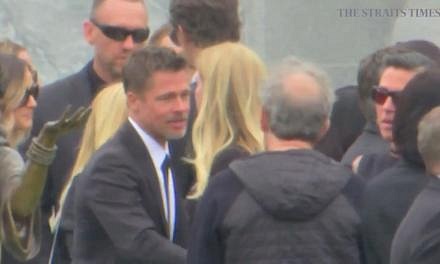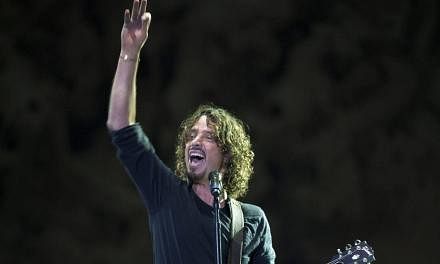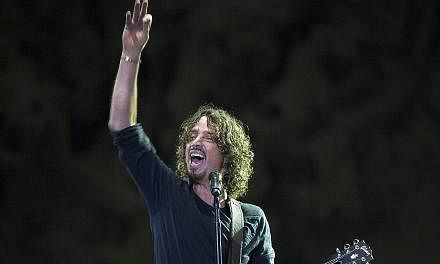With the sudden and unexpected death of Chris Cornell, the grunge pantheon still alive gets smaller by the day.
The Soundgarden frontman, who was found dead just hours after he performed with the band, joined other iconic singers from the late 1980s/early 1990s grunge era who have died. A preliminary autopsy showed that Cornell had killed himself by hanging.
Gone at the age 52, he lived a relatively full life, just like Stone Temple Pilots singer Scott Weiland, who died at 48 in 2015.
The rest died in their youth - Nirvana frontman Kurt Cobain died at 27 in 1994, Alice In Chains singer Layne Staley was 34 when he died in 2002 and Mother Love Bone singer Andrew Wood was only 24 when he died.
Their deaths leave only one still standing - Eddie Vedder, 52-year-old singer of Pearl Jam, a band which incidentally rose from the ashes of Mother Love Bone.
There's also Dave Grohl, who rose from being the drummer in Nirvana to fronting rock juggernauts Foo Fighters, but the latter band can hardly be classified as grunge.
The tragedy is that most of the deaths could be avoided and drugs almost always played a big part in their demise.
Staley was found dead with cocaine and crack pipes near him. Wood overdosed on heroin. Weiland was found to have died of a cocktail of cocaine, alcohol and MDA. Cobain committed suicide and was found with heroin in his system.
There are others, lesser known players in the grunge scene whose drug-related deaths are no less tragic - two bassists who died of heroin overdose are Kristen Pfaff from Hole (1994, aged 27) and Mike Starr from Alice In Chains (2011, aged 44).
As a genre, grunge, centred around the grey, gloomy side of Seattle, was known for music that was often dense, murky-sounding and forlorn, a contrast to say, the happy, sunshiney, Californian pop of early Beach Boys.
While modern bands such as Metz and Wolf Alice have elements of grunge in their music, the genre has long passed its heyday in the 1990s.
There aren't that many new bands that still peddle the sludgy yet melodic grunge sound of that era.
More lasting, though, is its cultural impact, most notably the wearing of flannel shirts, ripped jeans, seasoned Converse sneakers or Doc Martens boots, which have remained strong. Nirvana T-shirts remain popular too, worn by the likes of Justin Bieber and as I witnessed earlier this week, a young mother pushing her baby in a stroller.
Still, grunge was at the forefront of the alternative rock explosion of the early 1990s, and its place in music history is sealed by how it rivalled mainstream pop globally during that time. Way before the age of streaming, Nirvana's Nevermind, for example, famously bumped Michael Jackson's Dangerous off the top of the Billboard album charts.
Like many teenagers of the time, I had my fair share of adolescent angst and the heavy, yet emotionally poignant music by Cornell, Cobain and their ilk resonated with me back in those days.
Soundgarden's 1991 release Badmotorfinger was one of the first albums I bought on CD after I made the upgrade from cassettes.
Sure, the music, a melange of rock, metal, psychedelia and blues, was arresting but it was always Cornell's singular voice that made Soundgarden who they were. The same could be said of Audioslave, the early 2000s rock supergroup he formed with members of Rage Against The Machine.
His singing could be angelic, soaring flawlessly as he wailed in the high registers, and roughhewn and ragged when he needed it to be, often all in the same song.
From Soundgarden classics such as Outshined and Fell On Black Days, Audioslave's rock hits like Cochise and Like A Stone to his many other projects, including James Bond theme You Know My Name from Casino Royale (2006), you knew it was him singing even if you didn't recognise the song.
Perhaps a verse he wrote in seminal Soundgarden tune Black Hole Sun best sums up the remarkable gift that was his voice and the tragedy of his passing:
"In my shoes, a walking sleep / And my youth I pray to keep / Heaven sent hell away / No one sings like you anymore".
Rest in peace, Chris, may the angels accompany you into the Superunknown.








